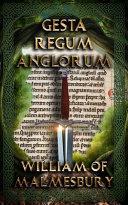“That fatal day for England, the sad destruction of our dear country [dulcis patrie].”
On the Battle of Hastings. (M. T. Clanchy, England and Its Rulers: 1066-1272 (Blackwell, 1998), p. 24.)
William of Malmesbury was the foremost English historian of the 12th century. He has been ranked among the most talented English historians since Bede. Modern historian C. Warren Hollister described him as "a gifted historical scholar and an omnivorous reader, impressively well versed in the literature of classical, patristic, and earlier medieval times as well as in the writings of his own contemporaries. Indeed William may well have been the most learned man in twelfth-century Western Europe."William was born about 1095 or 1096 in Wiltshire. His father was Norman and his mother English. He spent his whole life in England and his adult life as a monk at Malmesbury Abbey in Wiltshire, England. Wikipedia

“That fatal day for England, the sad destruction of our dear country [dulcis patrie].”
On the Battle of Hastings. (M. T. Clanchy, England and Its Rulers: 1066-1272 (Blackwell, 1998), p. 24.)
Gesta Regum Anglorum of 1125. (Hugh M. Thomas, The English and the Normans: Ethnic Hostility, Assimilation and Identity 1066-c.1220 (Oxford University Press, 2003), p. 56.)
Gesta Regum Anglorum (1125), quoted in M. J. Cohen and John Major (eds.), History in Quotations (Cassell, 2004), p. 160
